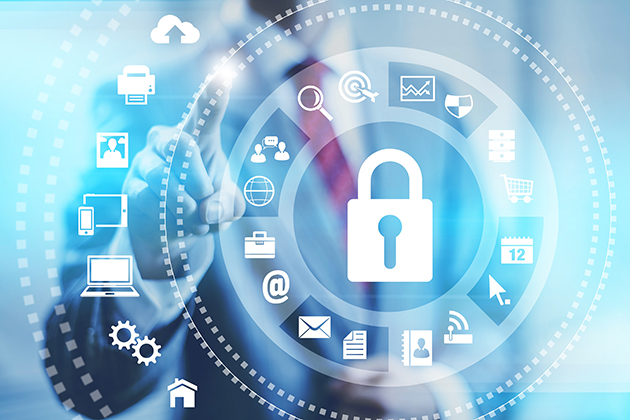How to protect personal data Printable version
Last update: 28.07.2025
Personal data attracts scammers who are constantly coming up with new ways to make money. The material describes how to protect personal information and not to become a victim of scammers.
If there was a data breach
Thus, personal data that is available in public domain is not enough to seriously harm a person and his/her wallet. However, it helps scammers who use social engineering techniques to mislead a person and try to lure missing parts of information.
It is widely known that scammers introduce themselves as bank employees in order to get the bank accounts/cards details. In this case, information available on the Internet helps scammers. As when a person calls you by name, knows your date of birth or national ID number, this makes to trust a caller.
It should be reminded that bank employees never call a client without prior actions from the part of a client, so it is better to stop dialogues about confirming or clarifying something right away.
However, scammers can use other methods. If a scammer knows your card number and e-mail, you can get an e-mail stating the following:"The compensation has been sent to your card No.__. Follow the link and enter the code from SMS to get it." By doing it, you will simply open access to your money.
In any case, avoid following questionable links or opening files received via WhatsApp, Telegram or e-mail.
The scammers give various pretenses. But one thing is certain, without your assistance, no scammer will be able to get to your account. This occurs when users, under psychological pressure, voluntarily disclose missing information to scammers. This can include SMS codes, CVV codes, card expiration dates, code words and passwords from their personal accounts.
Keep the following information confidential: PIN codes, CVV/CVC, card expiration dates, codes from SMS and push notifications, DS, IIN, etc.
How personal data gets online
Sometimes scammers manage to get personal data by hacking, for example, trading companies, service centers, even hotels and carriers. Their web-resources are protected much worse than bank ones. Moreover, even by hacking a social media account or e-mail, it is possible to learn a lot about both a person and his/her acquaintances.
Some consumers enter their data, phone numbers and card details on the pages of fake contests, lotteries and surveys or on the websites of financial organizations, stores and other companies.
Scammers can use a specialized software to forge documents and simulate various notifications. If your information somehow got into the hands of scammers, they can make a fake letter, for example, from a tax authority or prosecutor's office, send it to you by e-mail or via messengers and afterwards a scammer will personally call, threaten, blackmail and offer to "negotiate in an amicable way". For example, you will need to transfer a certain sum to an electronic wallet to stop the case from being filed further.
Transfer of money to scammers will not help you get rid of a fine, even if there is one in reality. Sometimes scammers find out that a person has a debt, lure that money from a person and then disappear. In this case, neither a fine or debt will be lifted.
Security guidelines for personal data protection
To do this, just follow the following guidelines:
- Do not share your PIN with anyone else and only enter it at ATMs and POS terminals;
- Do not tell anyone the full details of your card and do not post photos of it on the network and do not transmit it via messengers even to people you know well. Your card number or phone number is all that's needed if someone wants to transfer money to you;
- Never tell or send your personal data to strangers, including copies of identity documents;
- Never publish your personal or banking information online;
- Refrain from participating in dubious online contests and lotteries in which you need to enter personal information or financial details;
- If you are going to make an online purchase, make sure that a website really belongs to an online store and carefully check the spelling of the website in the address bar, it should start with HTTPS and a closed lock symbol;
- Get a separate card intended only for online purchases. Replenish it only prior to making a purchase;
- Activate SMS/Push notification service to receive data about transactions made with your cards;
- Carefully read the contents of SMS/ Push messages, if you receive a message about an operation that you did not perform, do not enter a password and promptly call a bank;
- Never enter a password to cancel transactions as such requests are generated only by scammers;
- Ask a bank if it is possible to enable 3D-Secure (VISA) or SecureCode (MasterCard) function for your payment card. Use complex passwords for your e-mail and personal accounts on the websites. The passwords should be different and consist of more than 10 characters, including uppercase and lowercase letters, numbers and special characters.
- Use biometric identification if your mobile devices or financial services have such a capability.
- If you entered your card details on a dubious website or reported it to scammers by mistake, then immediately call a bank to block a card;
- Refrain from installing dubious and unlicensed programs on your electronic devices. Do not use public (open) wi-fi networks to access Internet banking, e-mail and other resources where you indicate your personal, financial and business information;
- Use licensed antivirus software on the devices from which you connect Internet banking services.
And remember that alertness is the best protection against scammers!




